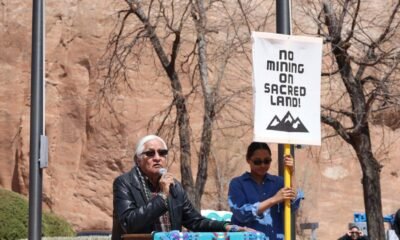News
Federal Court Partially Blocks Trump’s Election Executive Order

A federal judge has issued a preliminary injunction against certain provisions of President Donald Trump’s executive order on elections, which was enacted in March. The ruling places a hold on directives requiring documented proof of citizenship for voter registration.
Judge Colleen Kollar-Kotelly stated that the authority to regulate federal elections lies with Congress and the states, not the executive branch. Her 120-page opinion emphasized that the original framers of the Constitution did not intend to grant such power to the presidency.
While Kollar-Kotelly halted some elements of the order, she did not stop others, including enforcement directives related to ballot receipt deadlines and federal funding penalties for noncompliant states. She noted that challenges to these specific provisions were premature, as they needed to be raised by the states involved.
The controversy began when multiple nonprofit organizations and Democratic party committees filed lawsuits against Trump and relevant federal agencies. They argue that the executive order, which mandates significant changes in election administration, exceeds presidential authority.
Key provisions under scrutiny include a requirement for documentary proof of citizenship for federal voter registrations and withholding federal funds from states that do not comply. Additionally, the order sought to prevent states from accepting mail ballots that were postmarked before Election Day.
In court, the Justice Department defended the executive order, asserting its legality under existing laws. However, the plaintiffs contended that no harm had occurred since the government had yet to act on the contested provisions.
The lawsuits, filed in Washington, D.C., involve organizations such as the League of United Latin American Citizens and the NAACP, along with Democratic national party committees. Additional lawsuits are being pursued by 19 state Democratic attorneys general, as well as Oregon and Washington, challenging various executive order provisions.
As the case unfolds, Kollar-Kotelly will oversee proceedings aimed at determining the constitutionality of the disputed elements of the executive order. The White House has not yet commented on the preliminary injunction, while the Justice Department has reiterated its commitment to defending the administration’s policies.


















